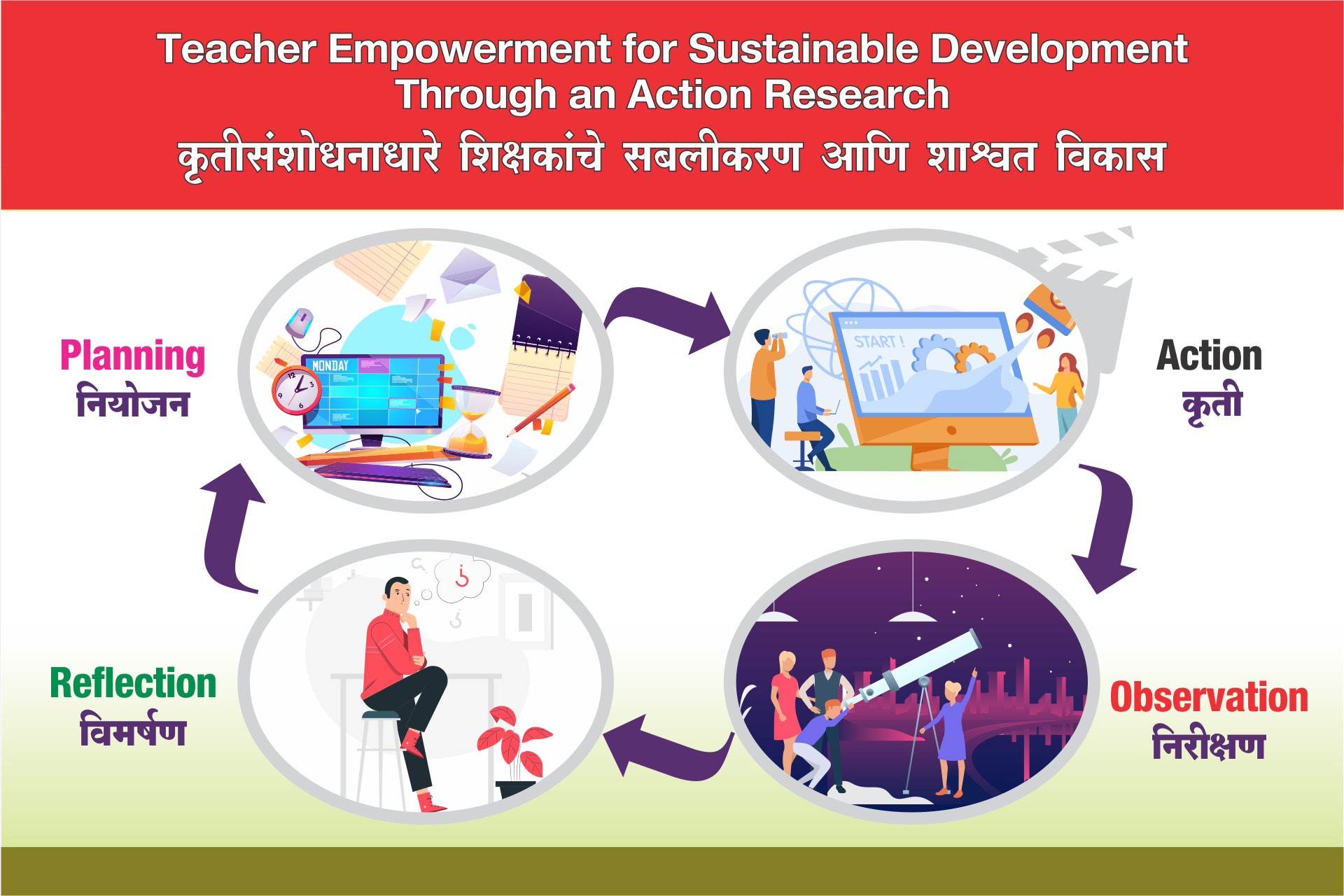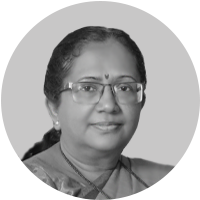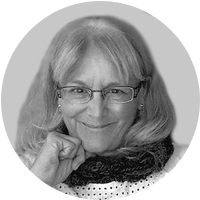
PROJECT
Teacher Empowerment for Sustainable
Development through Action Research
Action research seeks to bring together action and reflection, theory and practice, in participation with others, in pursuit of practical solutions to issues of pressing concern to people. The primary purpose of action research is to produce practical knowledge that is useful to people in the everyday conduct of their lives. In Primary and Secondary education Teacher having a important role for students development. If they acquire the skills for conducting the action research to solve their problem. Then the effectiveness of their teaching learning is increases.
This course is conducted in four week
1. Week
Action Research : Concept, Definition, Process, Research Proposal and relationship with Sustainable development goal 4.
2. Week
Development of Research Proposal and implementation strategy: Teacher has to identify day to day problem. Preparation of research proposal developed the implementation strategies for conducting the action research. Developed the tools for measuring the effectiveness of the strategies, and modification according to the need of the students.
3. Week
Analysis of Data: Teacher gets Qualitative and Quantitative data from the project. Data is analyzed and triangulation is done by the teacher. After Analysis identified lacunas. Refection is taking place and developed another strategy for conducting the activity.
4. Week
Report Writing: Action research report is different from other reports. It required the evidences and refection of the activities, Students wise progress, further planning. This report is useful to others. Therefore skills for writing the report is required.
In this project Open Educational resources is developed containing print material, Videos, animation and simulations.
Interaction and Collaboration among the students Questions bank is developed containing Multiple choice question for Quiz, and short answer questions for Discussion forum. This discussion form is asynchronous mode. Feedback Questionnaire is also developed for testing the effectiveness of the project.
Peer Evaluation:
Students shared their activities on discussion forum. Peer and tutor comments and evaluation will take. But it is used for developing the interaction capacity among the students.
End exam was conducted at the end of the project. Multiple choices Question are used for the end examination. Those students completed the activities and giving the end examination, they get certification.
Author

Sanjivani Rajesh Mahale
Dr. Sanjivani Rajesh Mahale working as a Associate Professor, YCM Open University, Nashik India as a Teacher Educators from last 27 years. She having an administrative experience as a Ex. I/C Director and coordinator of M.Ed. M.Phil Education, PGDEEDS, and SHG programme, She wrote books on various topics, and completed two funded research projects. She used Flipped learning technology and online technology for teaching learning . She guided more than 90 students master to Doctoral level research.
Mentor
Helen DeWaard
Helen DeWaard teaches digital and media literacy at the Faculty of Education, Lakehead University, Orillia. She has completed a Masters of Educational Technology from the University of British Columbia, a Masters of Education from the University of Toronto, OISE, and is currently pursuing a PhD. Her passions include teaching and learning with technology, digital storytelling, critical digital literacy, connecting to global contexts, and digital badges. She volunteers with the Virtually Connecting and ISTE Inclusive Learning networks, and has participated in the Mozilla Open Leaders project. Helen has served as an Open Education Fellow with eCampus Ontario, engages as a mentor through UNESCO, and is Creative Commons certified.

